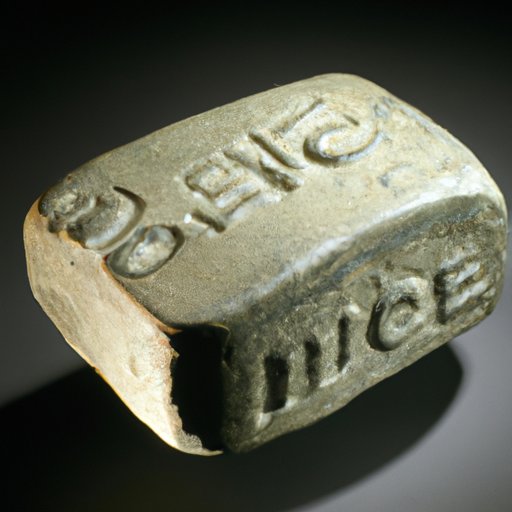
Introduction
Weight measurement in stone is a common unit used in the United Kingdom that has caused confusion for many people, especially those not accustomed to this system. This article aims to educate and clarify any doubts about stone weight measurement, including its history, conversion, and common uses.
Unlocking the Secrets of Stone Weight: Understanding the Conversion from Stone to Pounds
Stone weight is a unit widely used in the UK, with one stone equaling 14 pounds. Therefore, to convert stone weight to pounds, multiply by 14. For example, if someone weighs 10 stone, their weight in pounds would be 140. Stone weight can also be compared to other common weight units, such as kilograms (1 stone is equivalent to 6.35 kg) and ounces (1 stone is equivalent to 224 ounces).
From Stones to Pounds: A Beginner’s Guide to Measuring Weight in the UK
Stone weight as a unit of measurement dates back to ancient times but is still widely used in the UK today. It is often used to measure body weight, as opposed to other weight units like pounds or kilograms. To measure weight in stone, one can use a digital scale that indicates the weight in both stone and pounds, or an analogue scale that shows the weight in stone only.
The History of Stone Weight Measurement and Its Significance in Modern Times
Stone weight measurement is believed to have originated in ancient Greece, and it was later adopted by the Romans and the British. In modern times, it remains relevant in the UK, where it is commonly used to measure body weight and livestock weight. Although other weight units like pounds and kilograms are available, stone weight remains relevant due to its familiarity and convenience for UK residents.
The Pros and Cons of Using Stone Weight as a Unit of Measurement
One of the advantages of using stone weight is the familiarity and convenience it provides, especially for those accustomed to the system. Stone weight is commonly used in the UK, especially in areas like health and fitness, agriculture, and construction. However, one of the disadvantages is that it is not commonly used in many other parts of the world, which can cause confusion when communicating weight measurements. Therefore, it is essential to know how to convert stone weight to other weight units like pounds and kilograms.
How to Convert Stone to Other Common Units of Weight like Kilograms and Ounces
To convert stone weight to kilograms, multiply the value in stones by 6.35. To convert stone weight to ounces, multiply the value in stones by 224. For example, to convert 10 stone to kilograms, multiply by 6.35 to get 63.5 kg. Conversion to other units may help with communication and comparison with weight measurements in other parts of the world.
Common Uses of Stone Weight in Different Industries and Fields of Study
Stone weight is commonly used in different areas such as health and fitness, agriculture, and construction. In health and fitness, it is used to measure body weight, while in agriculture, it is used to determine livestock weight. In construction, it is used to measure the weight of building materials, such as bricks and cement blocks. Stone weight is sometimes preferred over other weight units in these areas, where it is more convenient and familiar.
Conclusion
This article has provided a comprehensive guide to stone weight measurement, including its history, uses, conversion, advantages, and disadvantages. Knowing how to convert stone weight to other weight units can help with communication and comparison with other parts of the world. Stone weight remains relevant in modern times, especially in the UK, due to its familiarity and convenience.
To avoid any confusion, it is worth knowing how to measure in stone weight and how to use conversion formulas. We hope this article has helped you gain a better understanding of stone weight, and we encourage you to use this knowledge to better solve your weight measurement problems.




